- News
- Reviews
- Bikes
- Accessories
- Accessories - misc
- Computer mounts
- Bags
- Bar ends
- Bike bags & cases
- Bottle cages
- Bottles
- Cameras
- Car racks
- Child seats
- Computers
- Glasses
- GPS units
- Helmets
- Lights - front
- Lights - rear
- Lights - sets
- Locks
- Mirrors
- Mudguards
- Racks
- Pumps & CO2 inflators
- Puncture kits
- Reflectives
- Smart watches
- Stands and racks
- Trailers
- Clothing
- Components
- Bar tape & grips
- Bottom brackets
- Brake & gear cables
- Brake & STI levers
- Brake pads & spares
- Brakes
- Cassettes & freewheels
- Chains
- Chainsets & chainrings
- Derailleurs - front
- Derailleurs - rear
- Forks
- Gear levers & shifters
- Groupsets
- Handlebars & extensions
- Headsets
- Hubs
- Inner tubes
- Pedals
- Quick releases & skewers
- Saddles
- Seatposts
- Stems
- Wheels
- Tyres
- Health, fitness and nutrition
- Tools and workshop
- Miscellaneous
- Cross country mountain bikes
- Tubeless valves
- Buyers Guides
- Features
- Forum
- Recommends
- Podcast
review
 2022 Niterider Lumina Max 2000.jpg
2022 Niterider Lumina Max 2000.jpg£200.00
VERDICT:
Solid all-round option for everything from daytime road riding to night-time mountain biking
Powerful
Several different modes
Compact
The mount isn't as steady as some
Weight:
264g
Contact:
At road.cc every product is thoroughly tested for as long as it takes to get a proper insight into how well it works. Our reviewers are experienced cyclists that we trust to be objective. While we strive to ensure that opinions expressed are backed up by facts, reviews are by their nature an informed opinion, not a definitive verdict. We don't intentionally try to break anything (except locks) but we do try to look for weak points in any design. The overall score is not just an average of the other scores: it reflects both a product's function and value – with value determined by how a product compares with items of similar spec, quality, and price.
What the road.cc scores meanGood scores are more common than bad, because fortunately good products are more common than bad.
- Exceptional
- Excellent
- Very Good
- Good
- Quite good
- Average
- Not so good
- Poor
- Bad
- Appalling
The NiteRider Lumina Max 2000 Front Bike Light with NiteLink is a good all-round option with settings suitable for everything from daytime road riding to night-time mountain biking, although the beam pattern and all-out power are certainly directed more towards off-road riding. You'll find more options in our guide to the best bike lights, for seeing and being seen.
Although this light is described as the Lumina Max 2000 Front Bike Light with NiteLink, there really should be an asterisk somewhere in there. The NiteLink Wireless Remote that enables you to control both the NiteRider Lumina and a compatible rear light is sold separately for £50. Of course, NiteRider would like you to buy one but it's not essential. John has a NiteLink Wireless Remote that he's using alongside another NiteRider Lumina Max, but I'm reviewing only the light here. With that admin out of the way, let's get started.
Check our beam comparison engine above and you'll see that the Lumina Max 2000 offers a circular beam shape with no cutoff. It's extremely bright in the centre so it's great for piercing a hole in the darkness if you're mountain biking or gravel riding, but there's not a whole lot of peripheral illumination here.
That said, I've been using this light on the road as well as the tracks and trails, although there are no windows for side visibility. On the plus side, you do get a diverse range of settings that are suitable for various different types of riding.
Modes
Despite the name, 'walk' mode is fine if you just want to be seen when riding under streetlights and don't need to illuminate the road in front of you. It's not bright but it'll get you noticed, and it has the advantage of conserving the battery. You can get about 18 hours in this setting, but it's no good if you stray onto unlit roads.
You get four modes that are suitable for lighting the way ahead. For road riding, the low mode is about 200 lumens and lasts around seven hours, while medium is about 750 lumens and lasts around three. I found myself switching between the two when riding in the lanes at night depending on speed, traffic, and recent carrot intake.
The top two modes are suitable for off-road riding. High gets you about 1,500 lumens and around 1.5 hours, and above that you have boost mode which belts out 2,000 lumens, but it'll drain the battery in about 45 minutes.
That super-duper boost mode really is intense, right up there with Exposure's Maxx D in terms of the illuminance it provides at the centre of the beam. Switch to this mode and you'll not only see everything ahead of you, but you'll also wake up wildlife in surrounding hedges. It's far beyond anything that's required on the road and is best saved for special occasions – maybe when you're heading down a fast gravel descent, for instance, and you don't want to be surprised by a gaping pothole, or just for a birthday treat. Use it sparingly, though, and keep your fingers away from the business end because it gets really, really hot – especially if you're daft enough to leave it in boost mode while stationary.
On top of all that, you have three different flashing modes with run-times of up to 14.5 hours. These are handy for getting you noticed on the road during daylight, the fast flash being particularly conspicuous in traffic.
Check out our guide to the best rear bike lights too, for being seen from behind.
You flick between modes via two buttons on the back of the light (or the NiteLink Wireless Remote Control if you've stumped up the 50 quid), which is easy enough. The buttons glow different colours to indicate the mode you're in.
The order (from the top) goes red, blue, green, yellow. Wouldn't it be more logical to have them in the order of the rainbow, traffic lights or something else that everyone already knows? I mean, life's hard enough. I can't even remember which bin goes out on a Thursday never mind memorising a new colour sequence. I guess it doesn't matter much – you press the front button to move up and the back button to move down.
Four LEDs tell you how much fuel is left in the tank. When the last one shines solid red you're in reserve mode and you have about 20 minutes of battery left so you'd better head home. The light automatically switches to the low setting to conserve the battery and you can no longer access the higher modes. When the red LED start flashing you need to pedal like hell because it's going to get very dark in 10 minutes.
Charging
Recharging is via USB-C and is quick, taking just under three hours from flat. A silicone rubber cover effectively plugs the port the rest of the time.
The Niterider Lumina Max 2000 comes with an IP64 rating which means that it's dust-tight and can handle splashed water without any ill effects. A lot of lights have an IP65 rating for greater protection from water, but I've been using this in all weathers throughout the winter and nothing has got inside, so I can't say I'm especially concerned about that.
Mount
The light itself is a really solid unit that can shrug off a fair amount of abuse but I wouldn't say the handlebar clamp mount is of the same calibre. You can tighten it onto any round handlebar with a diameter from 25.4mm to 35mm with the integrated thumb screw, although it's less happy with non-round bars. If it's only slightly non-round you might get away with it, but anything that's properly deep section: forget it. Niterider does make an aero handlebar mount that straps in place but you'd need to source it separately.
The light slides on the mount and clips in place. I've never had it come off accidentally (nor with any of the similar Niterider designs I've used in the past). I must say, though, that the light can bounce on the mount a bit when you're riding off-road (it can be cured by putting some tape in the slot on the bottom of the light to form a tighter interface).
Value and conclusion
Looking at others we've reviewed recently, the Cateye Volt 1700 USB Rechargeable that Iwein tested back in December is similarly priced at £179.99. The NiteRider offers more power but the Cateye provides longer battery life and has a beam shape that's better suited to the road, if that's what you're after.
Lezyne's Mega Drive 1800i front light, tested by Ashley last year, is another option. Again, the NiteRider wins in terms of all-out power but the Lezyne's beam is more spread out for better peripheral illumination, and its run-times are longer. It's also £40 less.
There's a lot to recommend the Niterider Lumina Max 2000, including a wide range of modes and a tough, compact design, but it's positioned in a crowded market where it's hard to stand out. That said, if you want a load of power at your fingertips, it's certainly worth a look.
Verdict
Solid all-round option for everything from daytime road riding to night-time mountain biking
road.cc test report
Make and model: Niterider Lumina Max 2000 Front Bike Light with NiteLink
Size tested: n/a
Tell us what the light is for, and who it's aimed at. What do the manufacturers say about it? How does that compare to your own feelings about it?
NiteRider says, "A versatile, feature-rich, rechargeable headlight, the NiteRider Lumina Max 2000 features NiteLink wireless technology, enabling you to remotely control a compatible taillight (not included). Unleashing MAX Boost or its varying modes was never more easy as riders now have the ability to control both headlight and taillight with a flick of the thumb (Taillight and NiteLink Wireless Remote sold separately). Additional features include an 8-Step Fuel Gauge and a highly durable light housing with Dupont Fiberglass reinforced nylon."
Tell us some more about the technical aspects of the light?
NiteRider lists these features:
* MAX Lumen Output: 2000 on Boost Mode. MAX power requires MAX energy, use only when you need it most
* VerifiR NFC Technology
* Lumen Output: 1500 on High
* 8 Modes with Run Times: 0:45-18:00h
* Choose from 5 solid brightness levels and 3 multiple flash patterns
* Charge Time: 3:00h
* USB-C Rechargeable
* Weight: 216 grams
* Water / Dust Resistant IP64 Rated
* Pairs with NiteRider NiteLink Wireless devices
RUN TIMES*
Low - 7:00h at 200 Lumens
Med - 3:00h at 750 Lumens
High - 1:30h at 1500 Lumens
Boost - Up to 0:45min at 2000 Lumens
Walk Mode - 18:00h at 80 Lumens
Super Flash - 11:30h
Pulse Flash - 14:30h
Fast Flash - 10:00h
*Run time specifications may vary
Rate the light for quality of construction:
8/10
It's a solid light that stands up well to use and abuse.
Rate the light for design and ease of use. How simple was the light to use?
8/10
Rate the light for the design and usability of the clamping system/s
5/10
The clamp is simple to use but it fits only round (or very nearly round) bars, and the light could bounce a little when riding off-road.
Rate the light for waterproofing. How did it stand up to the elements?
6/10
The Niterider Lumina Max 2000 comes with an IP64 rating which means that it's dust-tight and can handle splashed water. A lot of lights have an IP65 rating for greater protection from water – but none got in during testing so no real worries.
Rate the light for battery life. How long did it last? How long did it take to recharge?
6/10
Recharging is quick: less than three hours from flat.
Run-times go from just 45 minutes in the boost setting to 14.5 hours in one flashing mode.
The run-times are decent but some rivals offer longer if that's important to you.
Rate the light for performance:
7/10
The overall performance – in terms of illumination, run-times, ease of use, and so on – is good.
Rate the light for durability:
8/10
It's a tough unit that should stand the test of time.
Rate the light for weight:
6/10
Rate the light for value:
5/10
It's in a very competitive market.
Tell us how the light performed overall when used for its designed purpose
It puts in a good performance across a range of different types of riding.
Tell us what you particularly liked about the light
The variety of modes and the top-end power.
Tell us what you particularly disliked about the light
The quality of the mount lags behind the quality of the light itself. It's not a bad mount and the light is never in any danger of coming off, it's just not as stable as many others I've used.
How does the price compare to that of similar products in the market, including ones recently tested on road.cc?
Looking at other options we've reviewed recently, the Cateye Volt 1700 USB Rechargeable Front Light is £20 less at £179.99. The NiteRider offers more power but the Cateye provides longer battery life and has a beam shape that's better suited to the road, if that's what you're after.
Lezyne's Mega Drive 1800i front light is £40 less at £160. Again, the NiteRider wins in terms of all-out power but the Lezyne's beam is more spread out for better peripheral illumination and its run-times are longer.
Did you enjoy using the light? Yes
Would you consider buying the light? Yeah, but as mentioned, there are loads of options at this price.
Would you recommend the light to a friend? Yes, if they want that boost power for off-road riding.
Use this box to explain your overall score
It's a good, solid light that you can use for a variety of different types of riding. A solid 7.
About the tester
Age: 48
I usually ride: My best bike is:
I've been riding for: Over 20 years I ride: Most days I would class myself as: Expert
I regularly do the following types of riding: commuting, club rides, sportives, general fitness riding,
Mat has been in cycling media since 1996, on titles including BikeRadar, Total Bike, Total Mountain Bike, What Mountain Bike and Mountain Biking UK, and he has been editor of 220 Triathlon and Cycling Plus. Mat has been road.cc technical editor for over a decade, testing bikes, fettling the latest kit, and trying out the most up-to-the-minute clothing. He has won his category in Ironman UK 70.3 and finished on the podium in both marathons he has run. Mat is a Cambridge graduate who did a post-grad in magazine journalism, and he is a winner of the Cycling Media Award for Specialist Online Writer. Now over 50, he's riding road and gravel bikes most days for fun and fitness rather than training for competitions.







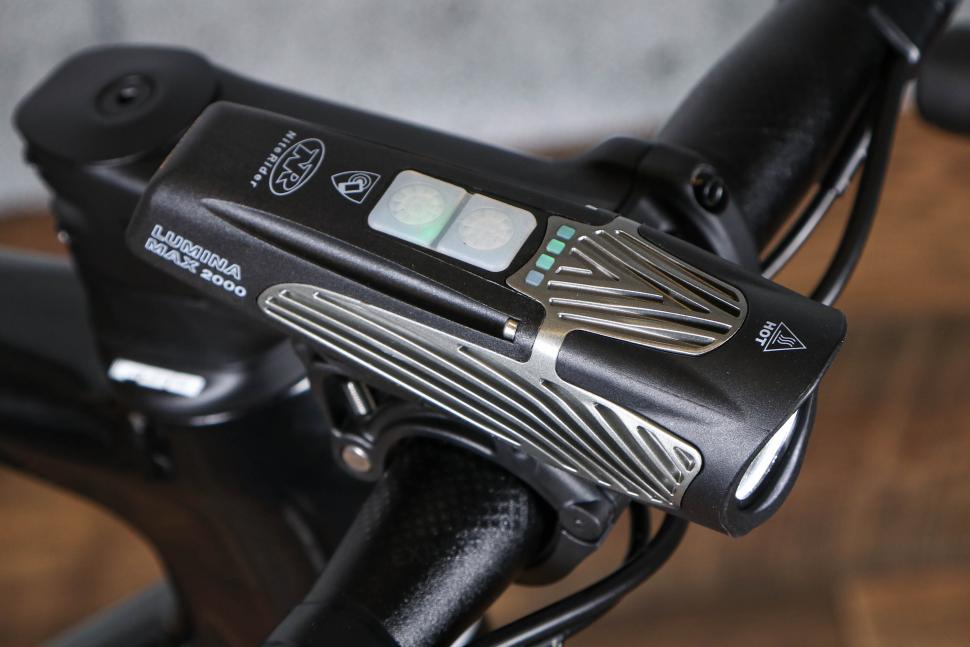

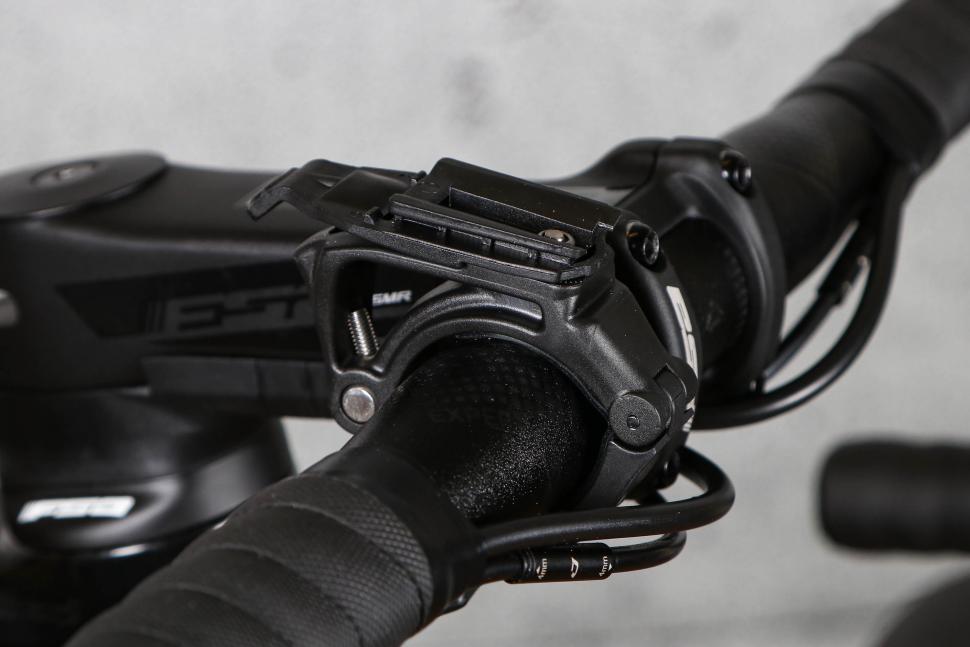
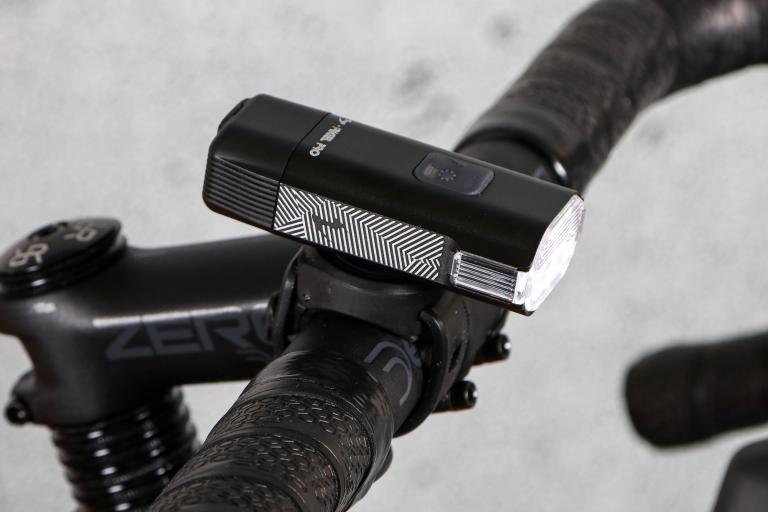
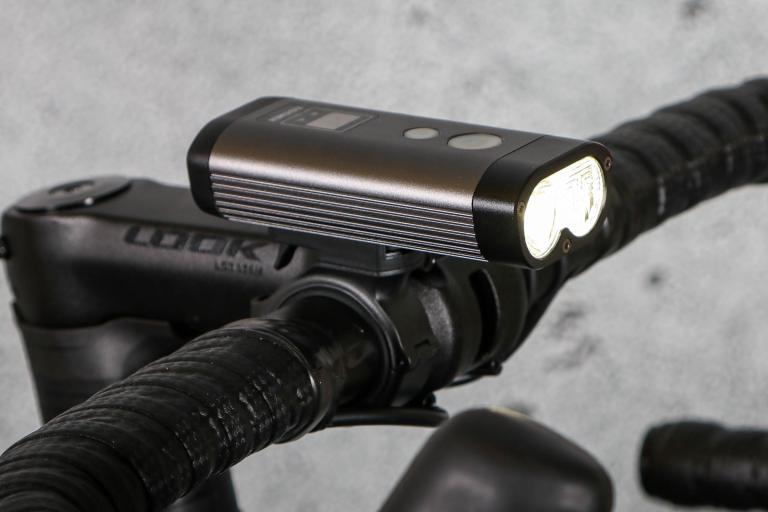
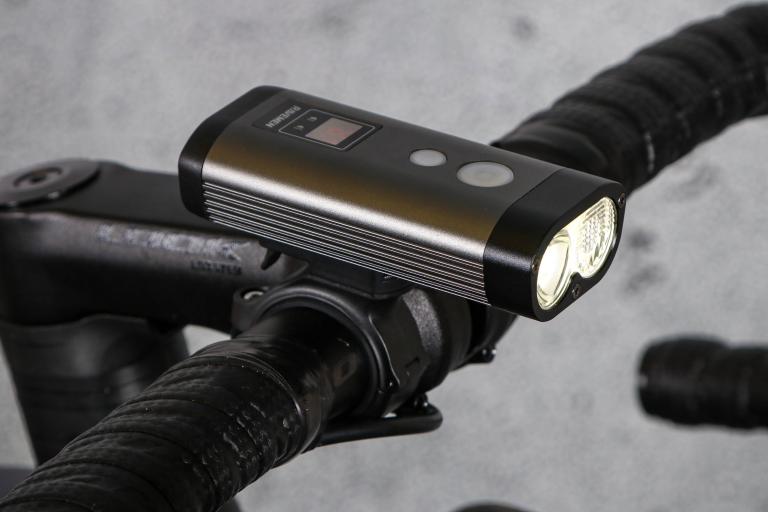
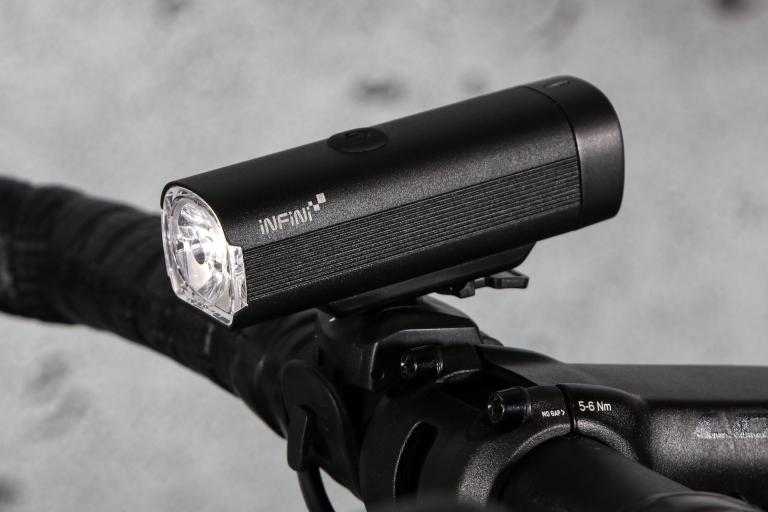
Now that cassettes are getting bigger i have also rediscovered the benefits of the cx crankset. 46/36 with an 11-36 cassette is absolute goldilocks.
Although a rise in the number of people who feel the need to carry a camera may reflect at least a perception that things are getting worse.
I just bought a pair of centerlock lockrings from Kogel for $45. Why? Because they were the only ones available in raw aluminium and weighed on par...
Causal factor - extreme use of mobile phone whilst driving leading to total loss of situational awareness and inevitable collsion with other road...
Along with the presumption of liability there should also be, in the cases of death of other road users a charge of manslaughter.
How can attending some course be appropriate for assault? Muppets!...
You can also apparently ride in a police car decked out in reflectives, and not be seen......
Ignorance of the law is no excuse ... except when it comes to road offences! Then ... "but I didn't mean it" and "I got a bit muddled" and "I was...
Perhaps she's thinking a bit *too* locally though - how is "more parking" gonna solve "congestion" and not eg. facilitate it? Unless there is a...
I very much like my Big Bores. Had them on for a couple of months, and they are still flowing nicely. They feel a fair bit easier to inflate and...